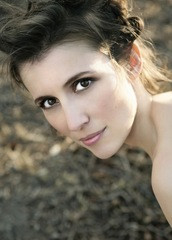|
Back
Piano Rarities New York
Zankel Hall, Carnegie Hall
09/20/2016 -
Franz Schubert: Piano Sonata in G Major, D. 894
Vladimir Drozdoff: Scherzo-Waltz (NY Premiere) Bluette – Sonata Lacrimosa – Trepak (NY Premiere) – Prelude: Sentimental Thoughts – Rêves (NY Premiere)
Sergei Bortkiewicz: 3 Mazurkas, Op. 64 (NY Premiere) – Fantasiestücke, Op. 61 (NY Premiere)
Franz Liszt: Hungarian Rhapsody No. 9 in E-flat Major, “Carnival in Pesth”
Nadejda Vlaeva (Pianist) 
N. Vlaeva (© Courtesy of the Artist)
For connoisseurs of piano and unusual piano repertory, the name of the Bulgarian pianist Nadejda Vlaeva has lately been connected to music her colleagues rarely touch. For her debut at Zankel Hall at Carnegie Hall, Ms. Vlaeva chose to explore a selection of charming miniatures by Sergei Bortkiewicz (1877-1952) and works by the even lesser-known Vladimir Drozdoff (1882-1960). I am indebted to this pianist for introducing me and her large, enthusiastic audience to this music.
Hearing these delightful, ear-catching pieces, one would never have guessed that their creators lived into the second half of the 20th century. Both rejected any notion of “progress,” and continued to craft their compositions in the manner of the Russian Romantic style, staying closer to early Scriabin, Arensky, Alabiev, or Rachmaninov than to their contemporaries Prokofiev, Szymanowski, or Bartók.
Both composers shared similar life stories: Drozdoff was born in Saratov, Russia, and Bortkiewicz was born five years earlier into the Polish nobility in Kharkov, Ukraine. Both were educated in either Vienna or Leipzig, returning home only to have to flee to Constantinople at the onset of the 1917 Revolution. Bortkiewicz settled in Europe, Drozdoff moved to New York.
Ms. Vlaeva wisely opted for a selection of Drozdoff compositions that demonstrated his masterly skills. It was obvious to this listener that one had to be a virtuoso to tackle many of them, like the Scherzo-Waltz with its shimmering arabesques and whirlwind fiorituras, or the fiendishly difficult transcription of “Trepak” from Tchaikovsky’s The Nutcracker, for which it seemed three hands were needed to negotiate all the notes. The other, quieter pieces charmed the audience with their unashamed romantic flavor. The final work in a set of six, the Sonata lacrimosa, written in memory of the composer’s wife, was the longest and most profound, giving us a glimpse of the sound world of early Scriabin. It persistent motif put me in mind of the Dies irae, so beloved by Rachmaninov, whose influence could be detected elsewhere in this evening’s program as well. These works demand a sense of elegance, a subtle touch, and fleetness of fingers, all of which Ms. Vlaeva displayed with abandon. She has the fluidity and ease to conquer all the difficulties the composer presents.
Ms.Vlaeva allowed the intermission to separate the two groups of Russian miniatures: though lovely, melodious, appealing and extremely well-written, they still are very much in the same mood. Bortkiewicz was represented by his Fantasiestücke and Three Mazurkas. Schumann invariably comes to mind when thinking of “fantasy;” Bortkiewicz’ pieces, neither as varied nor as long as Schumann’s, nevertheless are finely crafted and are a joy to the ear. In one of them Vlaeva dispatched a difficult passage of octaves with the utmost ease. The short set of Three Mazurkas Op. 64 evoke Chopin themes and even exhibited similar Chopinesque figuration, albeit seen through the eyes of Tchaikovsky, Minkus, or Glazunov in their ballet music. They were again lovely, tuneful, charming, and sometimes reflective, as in the last one, more in the mold of Chopin waltzes. The same could be said about their beautiful performances: stylish, played with feeling, grace, and a lovely tone. My only regret is that we didn’t hear Bortkiewicz’s wonderful, powerful Second Sonata in C sharp minor, Op. 60, which Ms. Vlaeva plays magnificently on her Hyperion recording devoted fully to the music of this composer.
Ms. Vlaeva sees the Schubert sonata through the lens of 19th or early 20th century pianists, who took more liberties with tempo, phrasing, and dynamics than current esthetics dictate. At first I liked the relaxed, flowing and beautifully sung Schubertian lines, but was not convinced by the surges of tempo and dynamics, nor by the pedaling. There seemed to be a certain lack of grace in the third movement Minuetto, which felt pushed, and the final Allegretto similarly seemed to be missing lilt and a dance-like rhythm. However, one had to admire not only the ease with which Ms. Vlaeva negotiated the considerable difficulties of Schubert’s writing but also the very personal nature of her understanding of the score.
The official part of the recital concluded with a bravura performance of the challenging Liszt Hungarian Rhapsody No. 9, which for a long time has been this pianist’s calling card. If some of the playing conveyed an overabundance of force and pedaling, one had to admire how effortlessly she avoided the traps the composer sets for the performer. Indeed certain parts were rendered with an appealing flirtatiousness.
Our soloist offered three encores, of which the middle one, a virtuosic Toccata by Alexander Vladigerov (son of the more famous Bulgarian composer Pancho Vladigerov), brought the house to its feet. The two other encores were a seductive Elegy by Babajanian and a short work by Déodat de Severac, An Old Music Box.
Roman Markowicz
|